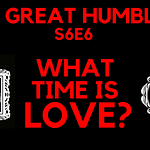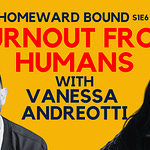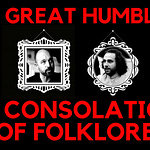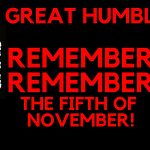Here we are in a state of tension… What have we been reading? ‘The Precipice - Existential Risk and the Future of Humanity by Toby Ord: https://www.bloomsbury.com/uk/the-precipice-9781526600219/
Revisiting The Road by Cormac McCarthy
Paul Behren's brilliant The Best of Times / the Worst of Times
Balance these with voices that straddle different scales. Three that Dougald is finding helpful just now:
Chris Smaje's blog (and forthcoming book) Small Farm Future – https://smallfarmfuture.org.uk
‘Who Will Feed Us’ by the ETC Group is the source for the figures about the contribution of industrial agriculture to the world food supply – https://www.etcgroup.org/whowillfeedus
Gesturing Towards Decolonial Futures collective, and particularly their contribution to the openDemocracy debate around Deep Adaptation, with the reminder of how the narrative of a trajectory of civilisational progress threatened by climate change looks from elsewhere.
Tyson Yunkaporta’s “Sand Talk”
The Old Chinese Proverb says “The best time to plant a tree was 20 years ago. The second best time is now.”
The term “Long Now” was coined by one of the founding board members of The Long Now Foundation, Brian Eno. When he moved to New York City, Brian found that "here" and "now" meant "this room" and "this five minutes" as opposed to the larger here and longer now that he was used to in England.
Stewart Brand in Tom Wolfe’s The Electric Kool-Aid Acid Test, showing up to meet Ken Kesey out of jail:
“a thin blond guy with a blazing disk on his forehead too, and a whole necktie made of Indian beads. No shirt, however, just an Indian bead necktie on bare skin and a white butcher's coat with medals from the King of Sweden on it.”
The ‘Irresistible Force Paradox’: “What happens when an irresistible force meets an immovable object?” It’s a paradox because if a force is irresistible...then nothing can resist it, and vice versa!
Thought to originate from the Chinese word for ‘contradiction’:
In a 3rd century BC philosophical book a man was trying to sell a spear and a shield. When asked how good his spear was, he said that his spear could pierce any shield. Then, when asked how good his shield was, he said that it could defend from all spear attacks. Then one person asked him what would happen if he were to take his spear to strike his shield; the seller could not answer. This led to the idiom of "zìxīang máodùn" (自相矛盾, "from each-other spear shield"), or "self-contradictory".
Brian Eno’s ‘Oblique Strategies’ cards?
‘Never wrestle a pig. You both end up covered in shit...and the pig likes it’
Here’s a few examples...that might help us now...
Use an old idea
What to increase? What to reduce?
Are there sections? Consider transitions.
Honour thy error as a hidden intention.
Ask your body.
Work at a different speed.
Gardening not Architecture.
The etymological garden of delight that the word ‘tension’ opens up – PIE root ‘*ten-’ meaning ‘to stretch’, with derivatives meaning ‘something stretched, a string; thin’
So tension is the experience of being stretched – it can be appropriate, the tension of a guitar string or a line of poetry (Rowan Williams) – or it can be painful and unsustainable
Attention – stretching towards
Thin – comes from this root – and through a sense of thinness meaning vulnerability you get a sense of something that’s young and delicate, which is where the word ‘tender’ comes from – one of those magical double words that weave together seeming opposites, tenderness can mean ‘pain’ and ‘gentleness’
Speaking of weaving, from the same PIE root you get ‘tantra’ (which isn’t just about sex!), meaning ‘the loom’ or ‘the warp’ or ‘the weave’, a skill in recognising and working with the fabric of reality – and that takes us back to Alastair McIntosh’s Riders on the Storm, because he brings the whole book home with this idea of the need to be held in ‘the basket of community’, a Hebridean tantra!
In this beautiful trickiness of language, there’s a clue – especially in those strange words that hold opposites – ‘host’ and ‘hospitality’ and ‘hostility’– to how we find a way past blocked, stuck forms of tension
Lewis Hyde’s book, Trickster Makes This World, trickster as the inventor of traps and of ways of slipping the traps
Tyson Junkaporta and this from the opening chapter of ‘Sand Talk’:
‘The stories that define our thinking today describe an eternal battle between good and evil springing from an originating act of sin...recent traditions have emerged that break down creation systems like a virus, infecting complex patterns with artificial simplicity, exercising a civilising control over what some see as chaos. The Sumerians started it. The Romans perfected it. The Anglosphere inherited it. The world is now mired in it. The war between good and evil is in reality an imposition of stupidity and simplicity over wisdom and complexity’
Holding the tension of having to actually listen to, attend to and feel into what the world needs is much harder, if wiser, and by its very nature much more complex work. But it’s not impossible.
As Frank N Furter noted in the song ‘I can make you a man’ from the Rocky Horror Picture Show ‘he thinks dynamic tension, must be hard work. Such an effort, if you only knew of my plan, in just seven days, I can make you a man’
By living in this dynamic tension, maybe in just seven generations, we can become more human?











